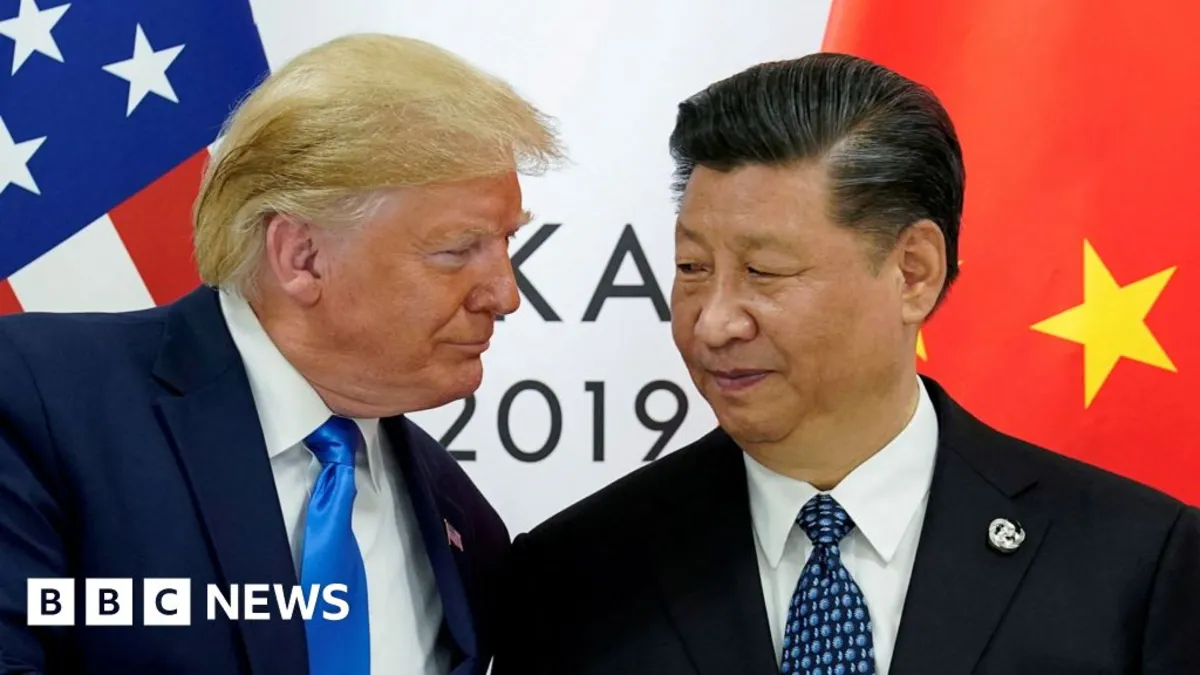
In a significant development, US President Donald Trump announced his upcoming meeting with Chinese Premier Xi Jinping in South Korea next month. This announcement follows a productive phone call where Xi expressed approval of a deal concerning the management of TikTok's US operations. Trump shared his thoughts on the matter through a post on Truth Social, highlighting the positive nature of their discussion and the appreciation for Xi’s endorsement of the agreement.
During the call, Trump mentioned that he plans to travel to China next year after the meeting in South Korea. This meeting is set to coincide with the Asia-Pacific Economic Cooperation (APEC) summit, which is scheduled to commence at the end of October. TikTok, owned by the Chinese company ByteDance, has faced pressure from the US government, previously being instructed to divest its US operations or face a potential shutdown. However, Trump has postponed the ban multiple times since its initial announcement in January, with the latest deadline now extended to December.
In his recent statements, Trump indicated that meaningful progress was made regarding trade issues during his conversation with Xi. He did not provide extensive details about the TikTok deal but reiterated its confirmation during the call. Reports suggest that the agreement may involve a coalition of US firms, including Oracle, which would allow TikTok to continue its operations in the United States by utilizing algorithm technology licensed from ByteDance.
The Chinese state media outlet Xinhua emphasized that China's stance on TikTok is unequivocal, encouraging firms to engage in commercial negotiations that adhere to market principles and comply with Chinese laws. Xinhua also expressed hope that the US would create a fair and non-discriminatory business environment for Chinese companies seeking to invest in the United States.
Despite Trump's optimistic outlook, several US lawmakers remain apprehensive about the TikTok deal. Some, including members of Trump’s own party, have voiced concerns regarding ByteDance's connections to the Chinese Communist Party (CCP). Michigan Republican representative John Moolenar, chair of the House Select Committee on the Chinese Communist Party, stated that he is worried the licensing deal could maintain a reliance on ByteDance's algorithm, potentially allowing continued CCP influence over the platform.
While Trump had previously advocated for a ban on TikTok during his first term, he has since reassessed the platform's value, considering it to be a critical component of his 2024 electoral campaign. In January, the US Supreme Court upheld legislation that would outlaw TikTok unless ByteDance relinquished its US operations. Although the app briefly went dark during this period, its ban was subsequently postponed.
The US Justice Department has previously raised alarms regarding TikTok's access to the data of American users, labeling it a potential national security threat of significant magnitude. The recent call between Trump and Xi marks their second conversation this year, following a June discussion about China's export of rare earth minerals. That dialogue led to China approving a specific number of export permits for US companies, along with the magnets manufactured from those minerals.
In recent months, US and Chinese officials have engaged in four rounds of discussions, managing to avoid imposing severe tariffs and strict export controls. Nonetheless, the US has already enacted 20% tariffs on certain Chinese goods linked to fentanyl trafficking. Many critical issues remain unresolved, including tech export restrictions and Chinese purchases of American agricultural products.